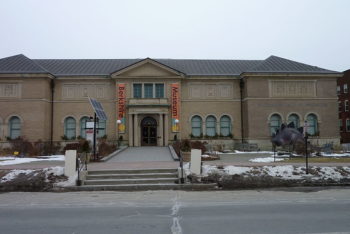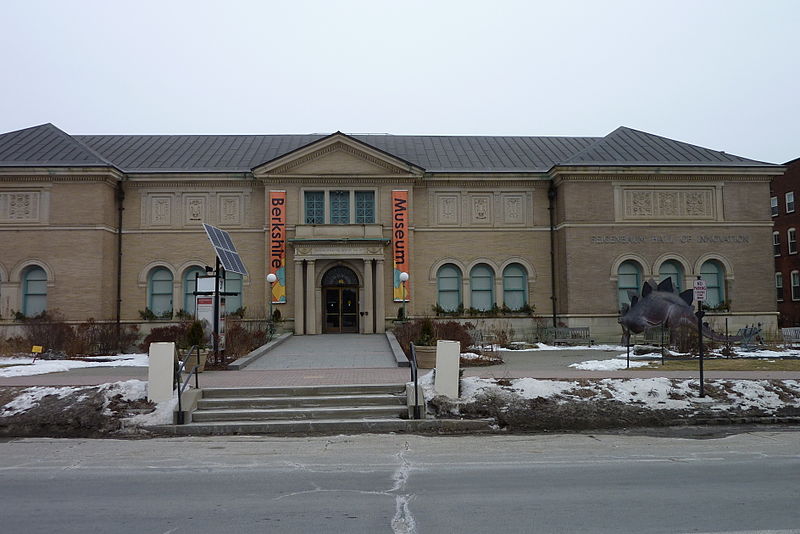[ad_1]

The Berkshire Museum.
JllM06/WIKIMEDIA
Just days after the Berkshire Museum announced that it will sell nine more works from its collection through Sotheby’s, the director who led that deaccessioning effort, which has so far brought in $47 million through the sale of 13 works and has been criticized vigorously by professional groups, said that he will retire.
Van Shields, the director of the Pittsfield, Massachusetts institution, said in a statement to the press, “Working with a board of dedicated and smart volunteers, along with community partners who share our belief in the museum’s power to transform lives, we have charted a course that will well serve the museum and this community.”
“We are grateful for Van’s leadership and vision, especially through a challenging time,” Elizabeth “Buzz” McGraw, the president of the museum’s board, said in a statement. “Van helped chart a course to secure the museum’s future, true to our mission and responsible to our community.”
David Ellis, a museum consultant who was president of the Museum of Science in Boston from 1990 to 2002 and president of Lafayette College in Easton, Pennsylvania, from 1978 to 1990, has been named interim director. Nina Garlington, the Berkshire Museum’s chief engagement officer, has been tapped as chief of staff.
Shields joined the Berkshire Museum in 2011 and last July rolled out the controversial plan to sell 40 artworks—including two Norman Rockwells donated by the artist, and pieces by Francis Picabia, Thomas Moran, Frederic Edwin Church, and others—in order to raise upward of $55 million to cover what he and the board termed a structural deficit that threatened the museum’s existence.
Shields’s plan called for the money to also be used to create an endowment, cover a renovation, and change the presentation of the museum’s collections of art, science, and artifacts to feature an emphasis on technology-driven displays. “We envision almost being like in Harry Potter,” he told a local reporter last year.
Museum groups and some local residents condemned the planned deaccessioning, since industry guidelines typically allow such sales only when proceeds are used to acquire new artworks or care for a collection. Some outside experts also argued that the museum was overstating its financial woes. Debate over the plan played out in both Berkshire and national publications, and reached a head in the fall, when the sons of Rockwell and locals filed suits aimed at halting the sell-off.
A week before the first court hearing in Pittsfield concerning the deaccession, Shields went on medical leave and returned in late December. (During his leave, Garlington and the museum’s chief experience officer, Craig Langlois, served as co-interim directors.)
The legal battle effectively concluded this past April, when the Massachusetts Supreme Judicial Court signed off on an agreement between the museum and the state’s attorney general’s office, which had been investigating the deaccessioning. That agreement, which surprised opponents of the deaccessioning since the AGO had previously been critical of the museum in court filings, largely allowed the museum to proceed with its plan, on the conditions that it sell work in three tranches and privately sell its most prized work, Rockwell’s 1950 painting Shuffleton’s Barbershop, to the Lucas Museum in Los Angeles, which has pledged to keep it on view.
Ellis, the new interim director, has also previously held that position at the Boston Children’s Museum and the Harvard Museum of Natural History.
The Berkshire Museum said it will undertake a national search to find Shields’s successor.
[ad_2]
Source link

